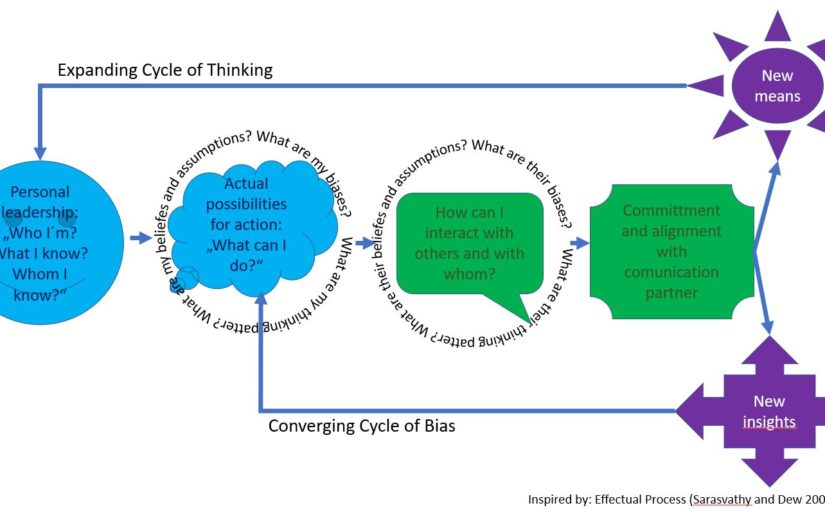Effectuation comes from Sara Sarasvathy and means to think and act independently by using available resources with like-minded partners and stakeholders. The key is to use uncertainties and difficulties successfully and flexibly for one’s own ideas and tasks. This approach was developed for entrepreneurs to find solutions and making dessisions.
We all have learned to believe that communication is more linear causal logically as Schulz von Thun suggested with the „four sides of a message“ or Claude Shannon and Warren Weaver wth the „sender-receiver-modell„. This was in a traditional world with clear markets and hierarchies functional and effective.
Today knowledge is not only a privilidge of hieracical higher levels, as in the VUCA world (VUCA = volatility, uncertainty, complexity and ambiguity) everyone has the possibility to be expert. Nothing is clear and structured, which makes a linear causal logically thinking of communication is in my eyes not efficient to drive big changes or to transfer the orgainisation into a learning organization. Communication has other dimension, which are not considerd in the traditional models. These factors are for example mindset, thinking patterns, mindfulness and past situations, influence the outcome.
Perhaps the dynamic effectuation approach can be inspirational used for a „VUCA communication“, like I tried to illustrate in the picture:

To be aware in a communication that our own biases, assumptions and beliefes influence all of our communication and as well our own personal character and abilities has an influence in how we lead a conversation and what outcome will appear, we can interact with curiosity and open mind with others. It´s an adventure to listen to people with curiosity what you can discover from the person self. As this deep understanding will lead to an better outcome of the communication as more perspective will influence the solution.





